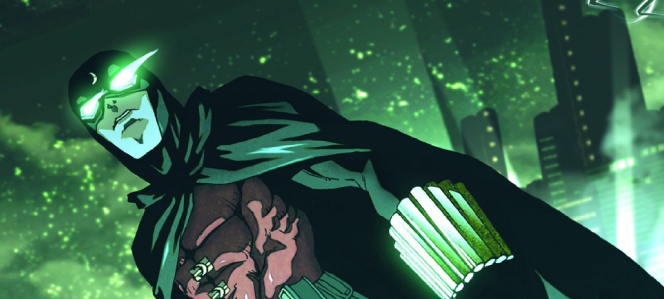There is undeniably something beautiful about the thirsting human spirit. Our continued desire to progress and ascend to great heights is commendable, an indelible mark of our image-bearing identity. In athletics, the sciences, literature, art and every other activity under humanity’s domain we as a race seek comprehension, expansion, perfection.
In some cases this quest for more can lead to unimaginable places. I recently came across an article about a diet known as the Bulletproof Diet. Like most other diets, it’s somewhat ascetic with its demands—eliminating grains, sugars and other staples from the standard American diet—with the aim of bettering health, shape, and fitness. Yet, unlike other diets, this one places great focus on maximizing mental capacity by removing hindering “toxins.”
This is all good and well. If you can safely increase your mental capacity through a certain diet, for example, then go right on ahead. We have an obligation to take care of our bodies and to ensure they are healthy. And like an athlete who trains with diligence and discipline, there is a spiritual dimension to catapulting the body to its greatest potential as a way of glorifying its masterful Creator.
Yet such an intense drive to unlock the human body’s reservoir of potential can go awry if left unchecked by grace. In some instances, we can delude ourselves into becoming superhuman. Literally. There is a subset of enthusiasts who engage in what’s called “body hacking.” This entails taking presumably safe but extreme measures to allow the body to achieve something akin to super powers.
Some of these “hacks” include becoming magnetic and turning your fingers into flash drives. One of the more compelling “hacks” is enabling night vision. By adding a diluted dosage of Chlorin e6 to their eyes (which in large amounts can be harmful), body hackers are able to mimic the vision of a deep-sea dragonfish that swims miles below the surface and uses a chlorophyll derivative in its eyes to see in the dark. By replicating the effect, users were able to identify people 50 feet away in a darkened area.
It is as intriguing as much as it is alarming. People are literally dropping foreign, potentially dangerous chemicals into their eyes in order to become like the fringe DC comic hero Doctor Mid-Nite. It seems we’re still not content being merely human beings—being gods just has a nicer ring to it.
And so we circle right back around to our famed first parents and their desire to be more than what God intended in Eden. I would like to point out that I think some of these tricks or “body hacks” are not necessarily harmful or bad. Rather, it’s the intense focus and commitment to unlocking transcendent powers that is cause for concern. As St. Irenaeus reminds us, we are called to be fully human, not more than human.
A “body hack,” no matter how crowd-pleasing, becomes fruitless in the long run if we are not rooted in Christ. Such idolizing can take the form of less extreme, but much more pervasive mentalities. We can commit ourselves to the gym unceasingly to increase our strength or appearance. We can become fanatical in our attempts to glorify the body, transforming our lives and diets to serve the goal of not being merely stronger, faster, leaner, but the strongest, fastest, leanest. This can take form in the intellectual or emotional realm as well. We can gratuitously consume books or ideas or delve headlong into the wild world of self-help as to seek perfect fulfillment in vain.
It’s no surprise that as religion recedes from our consciousness due to increased secularism that we would begin to look for salvation, and consequently divinity, through other means. There is always the danger to take our lives into our own hands without humbly accepting the limits of our nature.
And we don’t see this only in the physical, intellectual or emotional sense. We can do this with religion as well, attempting to will ourselves into sainthood by reciting the right number of prayers, doling out a plethora of penitential acts, or serving others until our bones are raw. Of course these can be good and necessary things to do, but they should stem from a response of grace and an acknowledgement of our frailness and limitedness.
God is the one who ultimately brings us to our glorified selves through his love and grace. We cooperate—to be sure—but he is the one responsible. It’s important that as we see more and more extreme versions of unlocking human potential spring to the fore that we keep in mind the ultimate hope we have in knowing human happiness and perfection rests in the grace of God alone and not in any of our own efforts, no matter how promising or outlandish.
